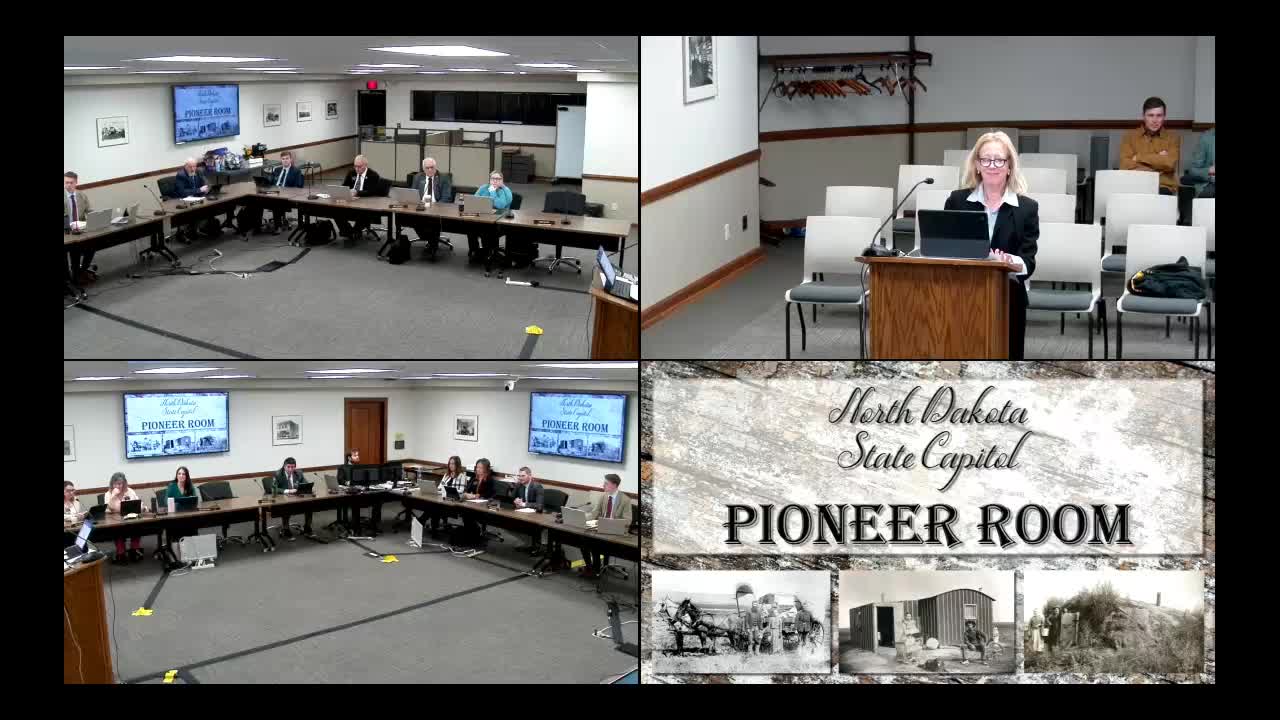Human Services Committee sends THC‑infused beverage study resolution to the floor without recommendation
Get AI-powered insights, summaries, and transcripts
Subscribe
Summary
After testimony from craft‑brewers and public‑health questions from lawmakers, the Human Services Committee voted 7‑5‑1 to send House Concurrent Resolution 3,031 — a request to study regulatory and economic issues around THC‑infused beverages — to the full legislature without recommendation.
A Human Services Committee hearing on House Concurrent Resolution 3,031 produced a 7‑5‑1 vote to send the resolution to the House floor without recommendation after testimony from the craft‑brewing industry and questions from committee members.
HCR 3,031, introduced by Rep. Liz Conmey (D‑District 11), asks Legislative Management to consider a study of the regulatory framework and potential economic impact of tetrahydrocannabinol (THC)‑infused beverages. Conmey told the committee the resolution would prepare the state "to compete as this market expands." She said industry representatives and the Department of Agriculture would be invited to participate in the study.
Scott Meske, executive director of the North Dakota Brewers Guild, and Mike Fralick, founder and brewmaster of Laughing Sun Brewing Company, told the committee that craft brewers are losing market share to producers in neighboring states and provinces that already sell hemp‑derived THC beverages. Meske said the guild represents local breweries and allied agriculture groups and reported a recent string of brewery closures: "In the last 2 years, we've lost six breweries; in the last 4 months we've lost four," he said. Meske asked for a study so stakeholders could "get people to the table" and develop regulatory guardrails.
Fralick said the products before the committee are hemp‑derived (he described delta‑8/delta‑9 derived from hemp), not marijuana, and that they are widely available in bordering states. He described typical dosage guidance he has seen from regional industry standards — a 5‑milligram dose with a maximum of two doses per can (10 mg per can) — and urged limits, product registration, independent laboratory testing, and labeling standards to reduce consumer harms. Both witnesses said the Department of Agriculture currently oversees hemp products and would have a role in testing and regulation.
Committee members raised questions about where raw materials would be sourced, whether beverages would be sold through alcohol wholesalers or convenience stores, age‑verification and marketing restrictions, the risk of mixing THC beverages with alcohol or energy drinks, and whether a state permitted market would simply shift tax revenue back from neighboring jurisdictions. Representative Belt (no) argued that the federal farm bill could close existing regulatory loopholes and opposed advancing a study; Representative Overton (yes) said the state risks losing tax dollars if it does not act.
The committee considered multiple motions. A motion to give HCR 3,031 a "do pass" recommendation failed on a tied roll call (6 yes, 6 no); a subsequent "do not pass" motion failed. The committee then voted 7‑5‑1 to send the resolution to the floor without recommendation. The committee record shows the following roll call on the final motion: Chair Ruby — No; Vice Chair Freilich — Yes; Rep. Anderson — Yes; Rep. Belt(s) — Aye; Rep. Belinski — Yes; Rep. Dobrevitch — No; Rep. Fegley — Yes; Rep. Hendricks — No; Rep. Holly — No; Rep. Kiefert — Yes; Rep. Rios — No; Rep. Rohrer — Yes. The clerk recorded the outcome as "Motion passed, 7 5 1."
The committee did not adopt any regulatory language; the resolution requests a study only. Several members noted federal action — including the farm bill — could affect state authority or the market during the study period. The committee also discussed whether related products such as kratom beverages should be included in broader study work, but made no formal addition.
The resolution now goes to the full House for consideration; the committee recorded that members would reconvene for more hearings next week.
Ending: The committee emphasized that HCR 3,031 would only request a study — not change law — and that any regulatory changes would require future legislation after the study results and stakeholder input.
